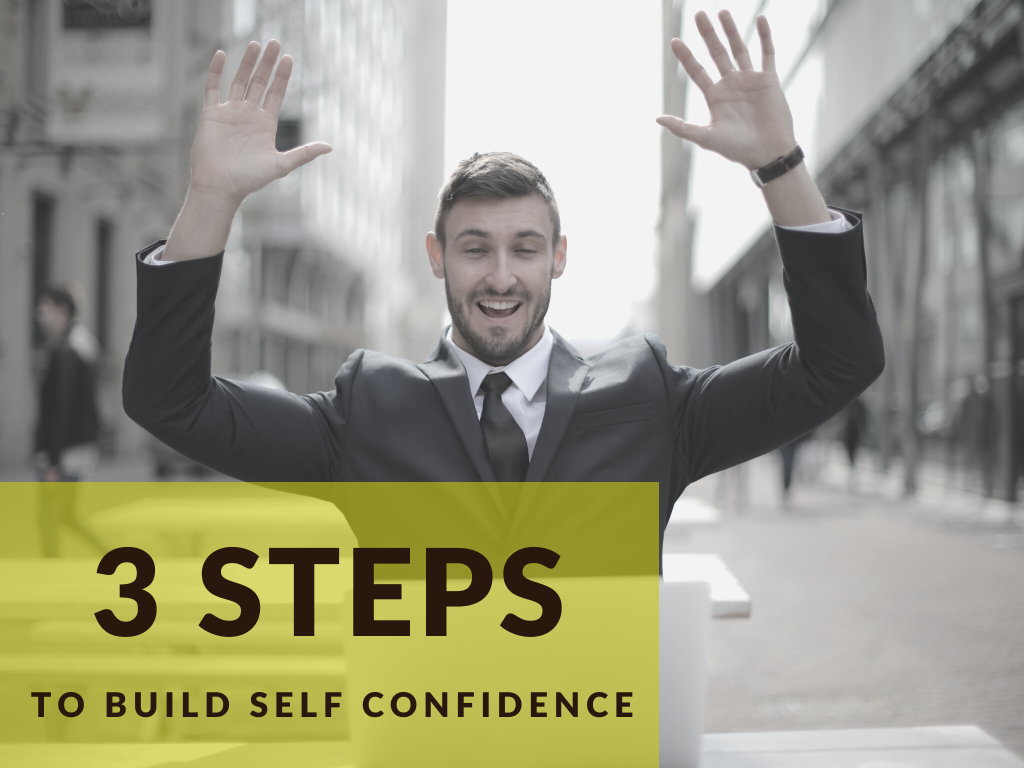Three Steps to Build Confidence
Three Steps to Build Confidence
Confidence. Some people have it, some people don’t. Some people had it once, but circumstances (or maybe other people) have caused it to melt away – like an ice cube subjected to hot pavement.
But can we get it back? Yes, we can. And can we put ourselves in a position where it’s harder to lose? Again, yes. A lot of this is personality-dependent, but it can also be learned.
What is Confidence?
To have complete confidence, we actually have to have three types – especially in teams or in the workplace. They are a) Confidence in the team, b) Confidence in the system and c) Self-Confidence. This article is dealing with Self-Confidence. But teams and managers should know that self-confidence without the other two is not as potent in producing great performance.
Our Self-Confidence is based on our perception of what we are capable of, based on what we have achieved in the past. So generally, if we have achieved highly in the past, then we feel confident, and if we have failed to achieve in the past we have less confidence. But this isn’t always the case – because confidence is less about the situation that happens and more about how we think of the situation.
Step One: Remembering what we’ve achieved
I am constantly amazed at the high achievers that I come across in workshops and keynotes that have low confidence. The reason? When the emotional brain takes over in high-stakes situations, we tend to run some old software that tells us that we aren’t good enough. So how do we stop this? By reminding ourselves of all the great things we have achieved in the past.
Take athletes for example. Even the best athletes go to bed the night before a major competition with doubts about their ability to perform. So what the best ones do, is they keep a training diary and the night before their event they read back through it. They see all the work and preparation they have done, and they see key training sessions that they absolutely killed. This is what gives them confidence.
So, go back through the things you’ve achieved in your life. Things like getting through study, getting good grades, maybe you’ve even faced the exact situation you’re about to face again and you actually did pretty well. Remember those things.
Step Two: Have Confidence in the Process
This is a brilliant strategy when we go through a slump – when sales numbers are dropping or we aren’t quite getting the results we want.
Everything comes down to a solid process. For instance, sometimes it’s not about getting sales, it’s about making the calls and doing the work. If you are clear about the things that you can control and the process that gives you success the majority of the time, then you can be confident in following the process regardless of outcomes.
Step Three: Truly embrace the growth mindset
It tells us that no matter our level of initial talent, if we are willing to put in the work, then the results will come. This has been proven time and time again in every single industry, sport and business on earth. Trust this equation, put in the effort, and you can have confidence that you will make progress.
If You’re a Manager
Help your people do these for themselves. Remind them of the moments they really succeeded. Help them understand the process that will help them achieve their goals, and constantly talk about, and reward, effort – when people really put in the work and follow the process even when they don’t get results… because, believe me, if they are really applying themselves, the results are going to come.
** Tony Wilson is a Workplace Performance Expert focussed on helping leaders build the environment for high performance. His insights into performance science and it's application in the workplace will make you re-think the way that you approach leadership, culture change, high performance and productivity. Tony has an MBA and a BSc majoring in physiology and combines the two for a different perspective. He is also the author of Jack and the Team that Couldn't See and delivers workshops and keynote presentations around the globe.
